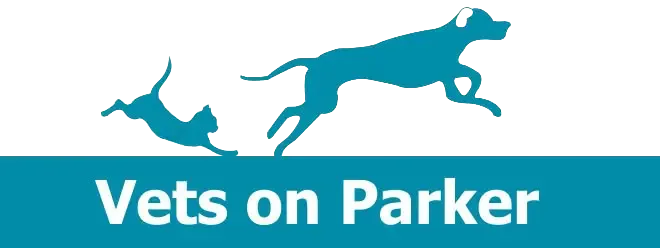Pet Laser Therapy
Vets on Parker offer laser therapy (photobiomodulation), a non-invasive procedure in which light technology is used to stimulate (and, in some cases, inhibit) cell function in cats, dogs and other pets, reducing pain and inflammation.
The laser therapy helps stimulate the nerves and tissues to treat chronic and acute pain in pets and creates the following benefits:
- Reduction in inflammation and swelling
- Natural pain relief
- Speeds up the healing process by accelerating tissue repair, cell growth and nerve cell regeneration
- Reduces scar tissue formation
- Improves immune response to infections
At Vets on Parker, we use laser therapy in our post-operative care for pain management and faster healing and recovery in cats, dogs, rabbits and other pets.
We also use it for treating:
- Osteoarthritis, injuries or degenerative joint disease
- Burns, hotspots, scars, skin or ear infections and skin disease
- Oral pain associated with stomatitis
- And much more
If you think your pet might benefit from laser therapy, please book an appointment with one of our vets.
Need an appointment?
Where your pet’s unwell, or it’s time for a general check-up or vaccination, your furry friend is in good hands. Book online to see our expert Vets on Parker!
Contact Details
Opening Hours
Monday – Friday: 8am – 7pm
Saturday: 8am – 4pm
Sunday: 10:00 am – 12:00pm
What Our Vets on Parker Pet Owners Really Think
EXCELLENTTrustindex verifies that the original source of the review is Google. Good vets. Kind staff. Caring always.Posted onTrustindex verifies that the original source of the review is Google. our 15yo dog has had problems with prostate, for a few years, it was refreshing to finally get a solution to his problem, without an invasive procedurePosted onTrustindex verifies that the original source of the review is Google. Great all round experiencePosted onTrustindex verifies that the original source of the review is Google. Jessie has been visiting the team at VOP since she was 8 weeks old, she is now nearly a 15 yo Labrador. Dr. Kevin and the whole team at reception, other vets and nurses have treated her like a family member. VOP have looked after Jessie during emergency visits and routine appointments and have always been accommodating and patient. Jessie will soon be relocating to another city and unfortunately will not be able to see the team at VOP. Thank you to everyone for looking after her.Posted onTrustindex verifies that the original source of the review is Google. Just wanna appreciate your good and professional services for my cat meow meow even we couldn't have her for a bit more longer.. I have no regret that I brought her to here since she was younger , she had some happy time with all of us .Posted onTrustindex verifies that the original source of the review is Google. Vets on Parker are a wonderful clinic, with even more wonderful staff. A special shout out to Dr. Erica and Dr. Kassy. The whole Vet Nurse Team are kind, caring and knowledgeable. The clinic has offered exceptional support to both of my pet dogs, especially my very senior dog who has since passed. I am so grateful for their innovation and care that they provided during such a difficult time.Posted onTrustindex verifies that the original source of the review is Google. Excellent clinic so kind and caringPosted onTrustindex verifies that the original source of the review is Google. I've been taking my precious dog to this clinic for 16 years and have always left happy and satisfied.
FAQs
Why does my pet need laser therapy after an orthopaedic procedure?
At Vets on Parker, we recommend Laser Therapy after orthopaedic procedures to help reduce the inflammation and pain associated with the surgery and speed up your pet’s recovery. Many owners comment on how quickly their pet returns to normal function after receiving laser therapy in the weeks following the procedure.
Can I be present while my pet receives laser therapy?
Yes, in fact, we encourage it. Our nurses perform the laser treatment with the owners present. Everyone, including your furry friend, just needs to wear protective eyewear during the treatment.
Does laser therapy hurt?
Laser therapy does not cause any pain. Your pet will only feel mild warmth and sometimes a tingling sensation.
Is laser therapy safe for dogs?
Laser therapy is generally considered safe for dogs and other pets when administered by a qualified veterinary professional. It is a non-invasive treatment that uses low-level laser light to stimulate healing. However, pet owners should always consult with their veterinarian to determine the best course of treatment for their individual dog’s needs.

